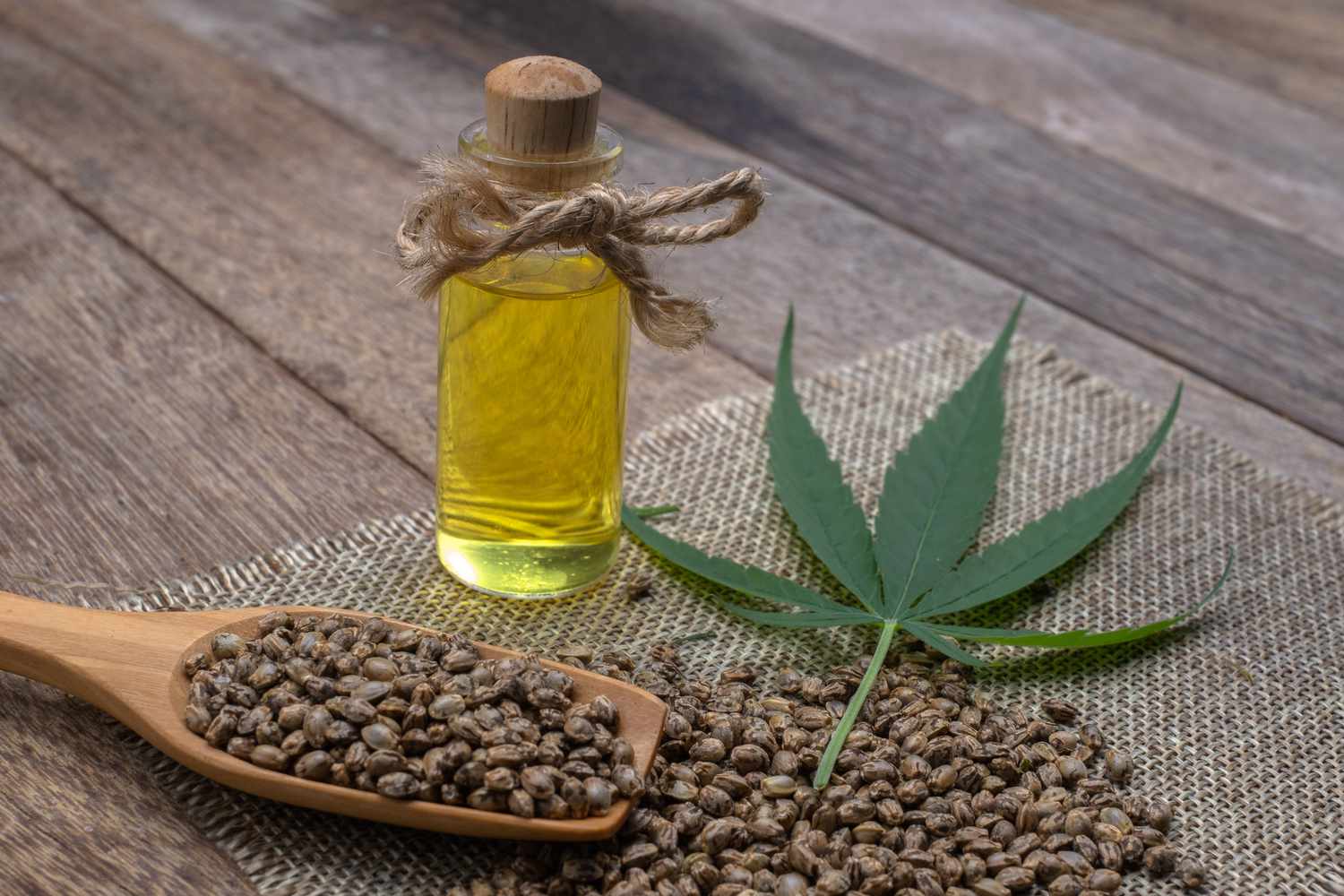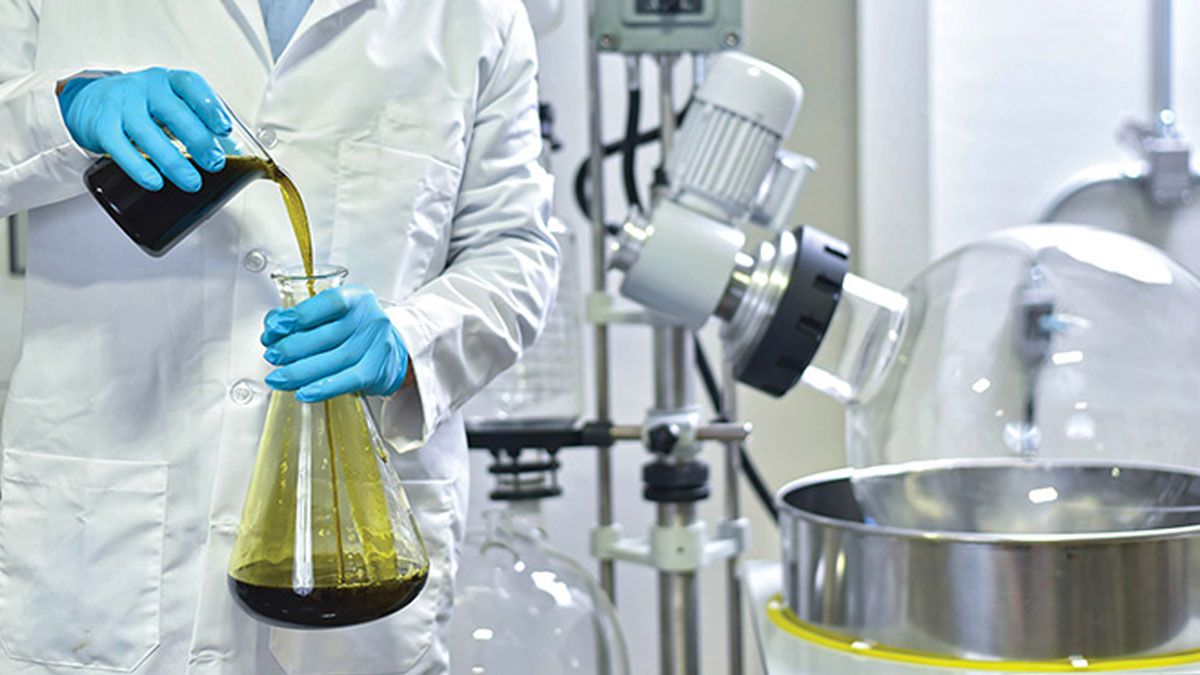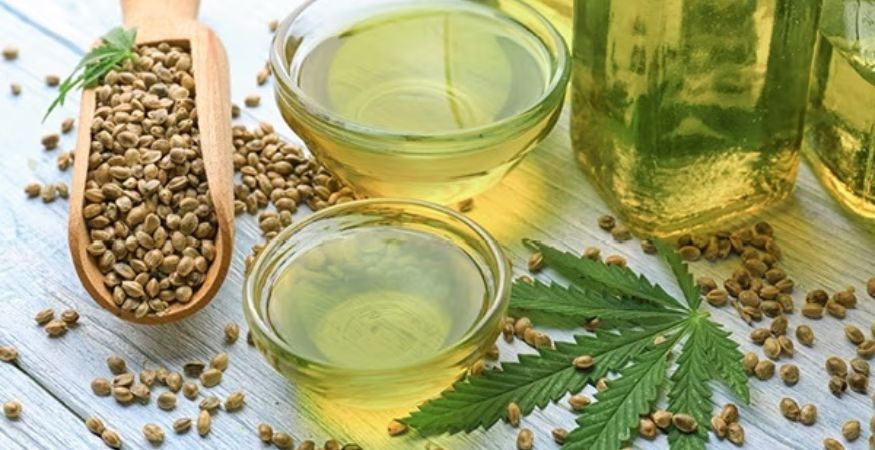Is Hemp Oil the Same as CBD Oil?
For many people understanding the terms used to describe CBD oil can be challenging. Many new words and acronyms are used to describe CBD oil, often without explanation, resulting in misinformation and confusion.
One such confusion exists around the terms ‘hemp oil’ and ‘CBD oil’, leaving lots of people wondering if they are the same product or two distinct types of oil.
This article will shed light on the differences between hemp oil and CBD oil, focusing on their origins, uses, and legal implications. Whether you're new to hemp oil and CBD oil or are already familiar with them, this guide is designed to define them and clear up any remaining confusion.
Is hemp oil the same as CBD oil - The short answer
No, hemp oil and CBD oil are not the same. Hemp oil, also referred to as hemp seed oil, is extracted from the seeds of the Cannabis sativa plant and is likely to be free of cannabinoids. It is primarily a nutrient-rich oil. On the other hand, CBD oil is produced by combining CBD extract from the flowers (which contains CBD and other cannabinoids) with a carrier oil. As a result of its CBD content and extraction process, CBD oil typically commands a higher price compared to most hemp seed oils.

Understanding the Origins of Hemp Oil and CBD Oil
Both hemp oil and CBD oil are derived from the Cannabis sativa plant, but their sources within the plant and their eventual uses can vary significantly. By grasping these origins, you can better differentiate between the two oils and make informed choices.
The Cannabis Sativa Plant: Source of Both Oils
From the Cannabis sativa plant, two distinct oils are derived: hemp oil and CBD oil. Their origin within this versatile plant distinguishes them in composition, benefits, and uses. Tracing back through history, the cannabis plant has been a cornerstone in various cultures, serving multifaceted roles.
Its fibres, known for their strength, were frequently used to produce textiles, ropes, and paper, with historical records showing its use in paper-making in places like China as far back as the 1st century AD. Additionally, the seeds, which are nutrient-dense, have traditionally been consumed for their nutritional value or pressed to extract oil.
Beyond its practical uses, the Cannabis sativa plant also found a place in religious and spiritual ceremonies in some cultures, appreciated for its potential mind-altering properties. This rich tapestry of uses underscores the plant's importance across different eras and regions.
Hemp vs. Marijuana: A Key Distinction
It's crucial to differentiate between hemp and marijuana (often referred to as high-THC cannabis), even though both originate from the Cannabis sativa species.
Hemp is cultivated mainly for its seeds and fibre and typically contains minimal THC. In contrast, marijuana can have significantly higher levels of THC.
In the UK, CBD oil is derived from low-THC hemp and any remaining THC is removed to meet the legal requirement that CBD oil is free from all controlled cannabinoids. Hemp oil, made from the seeds of the hemp plant is naturally cannabinoid (including THC) free. As a result, neither CBD oil or hemp oil will get you high or produce any intoxicating effects.
The Extraction Process: Hemp Oil vs. CBD Oil
Understanding how each oil is extracted can offer clarity on their differences. The methods used not only influence the content of the oil but also its potential uses and benefits.
Cold-Pressing Hemp Seeds for Hemp Oil
Hemp oil, or hemp seed oil, is derived by cold-pressing the seeds of the hemp plant. This process retains the rich nutrients of the seeds, resulting in an oil packed with essential fatty acids and vitamins.
Hemp seeds don’t contain any cannabinoids, so in most cases, hemp oil is completely cannabinoid free. However, occasionally, small pieces of hemp leaves can get stuck to the seeds resulting in traces of cannabinoids in some batches.
While you might think that it's just another cooking oil, with nutrient-rich culinary oils like hemp oil, good ratings are also given due to its impressive nutrient profile and potential health benefits.
Extracting CBD from Leaves, Flowers, and Stalks
To produce CBD oil, a meticulous extraction process is required to pull CBD, and sometimes other beneficial cannabinoids, from the leaves, and flowers, of the hemp and cannabis plants. There are various methods for CBD extraction, but two of the most common and safe methods are CO2 extraction and alcohol extraction.
CO2 Extraction: This method involves using carbon dioxide under high pressure and low temperatures to isolate and preserve CBD's purity. It's a technical process that requires significant expertise and specialised equipment. CO2 extraction is favoured by many because it allows for a clean and solvent-free CBD oil, ensuring that no residual harmful chemicals remain in the final product.
Alcohol Extraction: Also known as ethanol extraction, this method involves soaking the plant material in alcohol to draw out the cannabinoids. After soaking, the liquid is then evaporated, leaving behind the desired compounds. When done correctly, all the ethanol is fully evaporated, ensuring the end product is safe for consumption. Ethanol extraction is an age-old technique and is known for its efficiency in extracting a wide spectrum of cannabinoids.
Both these extraction methods, when executed correctly, meet high safety standards. It's essential for consumers to choose CBD products from reputable manufacturers that adhere to best practices, ensuring the highest quality and safety.

Nutritional Composition of Hemp Oil
Hemp oil, often overlooked in favour of its CBD counterpart, offers its own set of nutritional benefits, making it a valuable addition to a balanced diet.
Omega-Rich Culinary Oil: The Health Benefits of Hemp Oil
Hemp oil, is a nutritional powerhouse, especially in terms of its fatty acid content.
Omega Fatty Acids: One of the standout features of hemp oil is its rich concentration of omega-3 and omega-6 fatty acids. These essential fatty acids play a foundational role in our health:
- Heart Health: Omega fatty acids can support cardiovascular health by potentially reducing blood pressure, lowering cholesterol, and protecting against heart disease.
- Brain Health: Omega-3s, in particular, are critical for brain development and function. Regular intake can potentially aid cognitive function and even act as a preventive measure against age-related cognitive decline.
- Joint Health: These fatty acids can offer lubrication to the joints, potentially easing discomfort and enhancing flexibility.
Gamma-Linolenic Acid (GLA): Hemp oil also boasts gamma-linolenic acid content. GLA is a type of omega-6 fatty acid known for its anti-inflammatory effects. This can be particularly beneficial for people with conditions like arthritis, where inflammation is a primary concern. Additionally, some studies suggest that GLA can help with skin conditions, including eczema and psoriasis, by promoting healthy skin growth and reducing inflammation.
Vitamin E: Not to be overlooked, hemp oil is also a commendable source of vitamin E. This antioxidant plays a pivotal role in:
Skin Health: Vitamin E can potentially protect the skin from damage by free radicals and UV rays, thus potentially reducing wrinkles and keeping the skin youthful.
Immune System Boost: Vitamin E can fortify the immune system, aiding in the defence against common illnesses.
Incorporating hemp oil into a balanced diet can offer these potential health benefits, making it a valuable addition for those keen on maintaining or improving their health using natural sources.
A Reminder of the Absence of CBD in Hemp Oil
It's important to note that while CBD oil contains cannabidiol (CBD) and other cannabinoids, hemp oil typically doesn't. Instead, it's a nutrient-rich oil obtained from hemp seeds, without the therapeutic properties associated with cannabinoids.

The Therapeutic Potential of CBD Oil
CBD oil has already been the subject of several studies due to its potential therapeutic benefits. These studies have explored its effects on a variety of conditions, including stress, anxiety, chronic pain, and sleep disorders:
CBD Oil's Role in Stress and Anxiety Relief
CBD oil is often highlighted for its potential role in managing stress and anxiety. Research indicates that it may interact with serotonin receptors in the brain, which are integral to mood regulation and feelings of well-being. One study found that CBD promotes higher levels of the endocannabinoid anandamide, which in turn corresponds with significant improvements in conditions like social anxiety disorder.
CBD Oil as an Effective Pain Management Tool
Pain management is another area where CBD oil is showing promise. It's believed that CBD may reduce inflammation and interact with neurotransmitters to alleviate pain. Studies have suggested that an endocannabinoid system that’s been activated by CBD can promote the growth of new neurons in the hippocampus. This reduces the long-term effects of chronic stress and promotes recovery. This has led people with chronic pain conditions, such as arthritis or fibromyalgia, to consider CBD oil as a natural alternative to traditional pain relievers.
CBD Oil and Sleep Improvement
Difficulty sleeping is a concern for many, and some are turning to CBD oil for potential relief. By addressing factors like anxiety or chronic pain, CBD oil might indirectly promote better sleep. Furthermore, initial studies suggest CBD may affect sleep cycles, leading to increased time spent in the deep sleep phase. For instance, one study discovered that patients with REM sleep behaviour disorder linked to Parkinson's disease showed a significant improvement in sleep activity symptoms when their endocannabinoid system was stimulated by CBD.

Making an Informed Choice: Hemp Oil or CBD Oil?
Choosing between hemp oil and CBD oil depends on your needs and the benefits you're seeking.
Factors to Consider When Choosing Between Hemp Oil and CBD Oil
Choosing between hemp oil and CBD oil requires an understanding of their distinct characteristics and applications. Here are some key factors broken down by each oil type:
Purpose
Hemp Oil:
Ideal as a culinary oil for cooking or as a salad dressing.
Adds a nutty flavour to dishes and serves as a source of essential fatty acids.
CBD Oil:
Used primarily for its potential therapeutic benefits, which may include relief from pain, anxiety, and sleep disturbances.
Health Goals
Hemp Oil:
Suitable for those looking for general nutrition enhancement.
CBD Oil:
More appropriate for individuals seeking specific therapeutic effects or relief from particular ailments.
Existing Conditions
Hemp Oil:
Best for individuals with no specific health conditions but want to enrich their diet.
CBD Oil:
For those prone to conditions like inflammation or anxiety, considering CBD oil's potential benefits might be beneficial.
Product Purity and Origin
Hemp Oil:
Ensure it's pure, free from contaminants, and sourced from reputable growers.
CBD Oil:
Always verify the product's purity and origin. Checking for third-party lab test results is particularly crucial.
Dosage and Usage
Hemp Oil:
Used similarly to other culinary oils without strict dosage requirements.
CBD Oil:
Sold in smaller quantities, often requiring a more measured approach to dosing.
Conclusion
While both hemp seed oil and CBD oils originate from the hemp plant, they differ significantly in terms of composition, benefits, and applications. Hemp oil is popular for its nutritional content, ideal for culinary use and general dietary enrichment. On the other hand, CBD oil is prized for its potential therapeutic effects, targeting specific conditions like pain or anxiety.
Accurate labelling is essential, enabling consumers to make informed choices. Whether it's the THC content in CBD oil or the nutritional profile of most hemp oils, these labels guide consumers in understanding what they're purchasing.


